MSN in Nursing Leadership
Clinical Practicums
Request Information
Connect with a dedicated enrollment advisor to explore how the MSN in Nursing Leadership can support your goals.
"*" indicates required fields
Where Theory Meets Practice
The Role of Clinical Practicums in an MSN
Clinical practicums are a cornerstone of the MSN in Nursing Leadership program. These hands-on experiences provide the vital connection between classroom theory and real-world practice, allowing degree candidates to step into leadership-focused roles within real healthcare organizations. You’ll observe, participate, and contribute in meaningful ways that strengthen your skills and accelerate your professional growth.
Through each of the four required clinical practicums, you’ll:
- Apply leadership theories and strategies to real clinical settings
- Strengthen critical thinking and real-time problem-solving abilities
- Explore systems-level concepts such as budgeting, operations, and quality improvement
- Develop your personal leadership style while working alongside experienced professionals
- Gain valuable exposure to the strategic decision-making processes that shape healthcare delivery
- Expand your professional network through mentorship opportunities or project collaborations with established nurse leaders
- Prepare for your final capstone project, which integrates all your learning into a systems-based leadership initiative
From participating in initiatives like Magnet® recognition programs or shadowing executives during policy development discussions, these opportunities prepare you for high-responsibility roles, such as director of nursing, nurse educator, or chief nursing officer. They’re also aligned with certification pathways, including the Clinical Nurse Leader, Nurse Educator, or Nursing Informatics certifications, depending on your selected track.
Please note that students in either of the specialty tracks must complete one additional clinical practicum tailored to their specialization.
Clinical Practicum Requirements for the MSN in Nursing Leadership Program
Four clinical practicums spread over the course of the program
MSN-NL students complete four clinical practicums totaling 500 hours of hands-on, leadership-focused experience. These practicums are thoughtfully designed to help you integrate theory with practice, develop SMART goals, and receive personalized mentorship from nurse leaders across diverse clinical settings.
To ensure alignment with national certification standards, the clinical practicum sequence includes:
500 clinical hours over the course of the program
While this may sound like a significant commitment, the structure is intentionally flexible to meet the needs of working nurses. Time spent on practicum work may include project-based tasks, independent research, and virtual collaboration, not just traditional in-person hours. The clinical practicum sequence satisfies the clinical hour requirements needed to sit for the Clinical Nurse Leader (CNL) certification.
A final capstone clinical practicum in the last term
Completed as part of a systems-based practice course, this culminating experience integrates all competency-based learning from the program. You’ll apply advanced leadership principles in a supervised healthcare setting, including systems thinking, health equity, informatics, and interprofessional collaboration. Capstone projects are designed in accordance with the American Association of Colleges of Nursing (AACN) Essentials and American Organization for Nursing Leadership (AONL) competencies.
The Clinical Practicum Process at USD
How It Works
This process ensures that every clinical practicum is a personalized, professionally valuable experience that helps you build leadership confidence and real-world readiness, one placement at a time.
- Once you are enrolled in the program: You’ll submit a survey outlining your interests and goals, which helps our Program Directors and Clinical Placement Team identify a suitable site and preceptor. While we strive to place students close to home, some travel may be required.
- Once you are matched: You’ll complete onboarding steps, including site approvals, learning agreements, and compliance requirements such as background checks and immunizations. Clinical practicum hours begin at the start of the designated academic term and are completed concurrently with your coursework.
- Throughout your practicum: You’ll work under the guidance of an experienced nurse leader, nurse educator, informaticist, or healthcare executive. With their support and input from your clinical faculty, you’ll set specific, measurable goals that align with both the course objectives and your personal career aspirations.
Important Considerations
- Schedule flexibility: Clinical practicum hours are completed outside of your normal job duties and must be scheduled around your preceptor’s availability. Talk to your employer early in the process to ensure participation is feasible.
- Ongoing support: Faculty provide regular feedback, reflective assignments, and evaluations to help you get the most out of the experience.
- Documentation: Each clinical practicum includes a formal learning plan that outlines your objectives, deliverables, and expected competencies.
Breakdown of Clinical Practicum Courses
The clinical practicums in the MSN in Nursing Leadership program are designed to progress in sequence, each one reinforcing and expanding on your leadership knowledge and skills. These hands-on experiences run alongside theory-based courses, giving you the opportunity to immediately apply classroom concepts in real-world settings.
You’ll complete four required clinical practicum courses, starting in your second semester. Each course is paired with a corresponding area of study, providing a cohesive and integrated learning experience.
MSNC 615P – Advanced Nurse Clinician Practicum
This foundational practicum emphasizes advanced patient assessment and clinical judgment, with a focus on compassionate care, ethical leadership, and health technologies to improve outcomes. You’ll manage complex health problems while practicing socially responsible leadership and engaging in interprofessional communication.
What you’ll gain:
- Advanced clinical reasoning and decision-making skills
- Experience using evidence-based technologies in patient care
- A foundation for ethical and inclusive clinical leadership
MSNC 612P – Population Health Practicum
This practicum centers on population health, guiding you through the process of analyzing health trends and disparities to design and implement effective public health interventions. You’ll work with interdisciplinary teams and community partners to support health equity at a systems level.
What you’ll gain:
- Hands-on experience in community-based health program development
- Skills in population data analysis and advocacy
- A deeper understanding of social determinants of health and DEI principles
MSNC 656P – Management of Quality and Safety Practicum
This practicum gives you practical experience leading quality and safety initiatives in clinical settings. You’ll evaluate existing systems, apply quality improvement frameworks, and work with healthcare teams to promote a culture of safety for both patients and providers.
What you’ll gain:
- The ability to lead quality and safety improvement projects
- Experience using healthcare performance metrics and indicators
- Interdisciplinary collaboration and conflict-resolution skills
MSNC 655P – Systems-Based Practice Practicum
Your final practicum is also your capstone. Here, you’ll apply all prior learning to lead a system-wide initiative, develop health policy, and manage complex interprofessional teams.
What you’ll gain:
- Leadership experience in healthcare operations and policy development
- Practice designing, implementing, and evaluating large-scale initiatives
- Preparation for certification and high-responsibility leadership roles
Specialty Track Clinical Practicums
NURSING EDUCATION SPECIALTY TRACK
MSNE 635P – Nurse Educator Practicum
This practicum offers hands-on experience in nursing education, focusing on curriculum design, teaching strategies, and student assessment. You’ll work with experienced educators to create learning environments that support student success across classroom, lab, and clinical settings.
What you’ll gain:
- Practical skills in developing and evaluating nursing curriculum
- Techniques for effective teaching and student assessment
- Understanding of how education fits within healthcare and academic settings
INFORMATICS SPECIALTY TRACK
HCIN 647P – Nurse Informatics Practicum
This practicum provides hands-on experience applying nursing knowledge with health technology to improve patient care and clinical workflows. You’ll collaborate with healthcare teams to implement and evaluate technology solutions while ensuring data privacy and ethical use of information systems.
What you’ll gain:
- Skills in using data and technology to enhance healthcare delivery
- Experience working with teams on health IT projects
- Understanding of emerging healthcare technologies and their impact
Why Earn Your MSN in Nursing Leadership Through USD?

Tailored Clinical Placements
Practicum experiences are personalized to align with your interests, career goals, and geographic location.
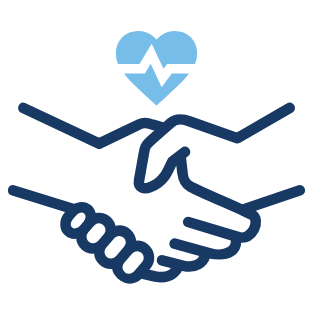
One-on-one Mentorship
Receive guidance from experienced nurse leaders and clinical preceptors who support your professional development.
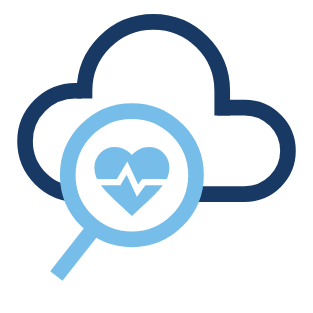
Robust Student Resources
Gain access to a wide range of academic and technical resources available throughout the program.
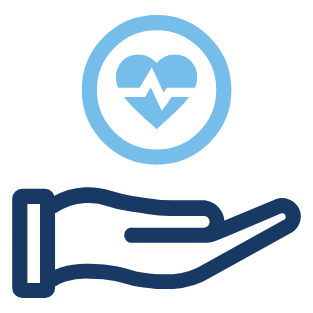
Accessible, Supportive Faculty
Faculty and program directors hold regular office hours and are committed to building real relationships with students.
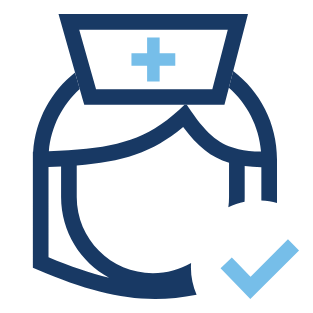
Expert Insights
Instructors possess real-world experience across healthcare leadership, nursing education, informatics, and executive roles.
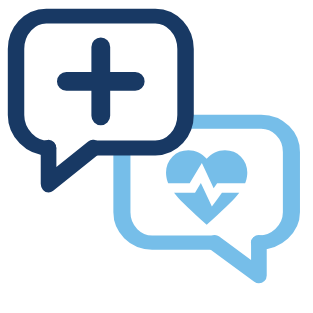
Networking and Engagement
Expand your professional network through connections with healthcare partners, alumni, and leaders in the field.
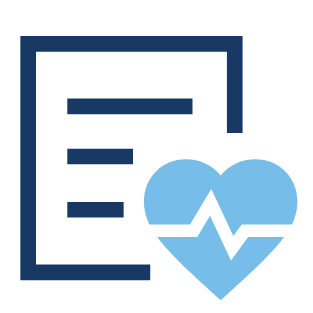
Real-World Capstone Project
Design and implement a real leadership initiative in a clinical setting to demonstrate measurable impact.
Ready to Learn More?
Connect with a dedicated enrollment advisor to understand how the MSN in Nursing Leadership can support your goals.
Frequently Asked Questions
What is the value of completing clinical practicums in a nursing leadership program?
Clinical practicums give you the opportunity to lead real initiatives, develop solutions in live healthcare settings, and build relationships that advance your career. Instead of simulating leadership, you’ll live it, gaining firsthand experience that prepares you to lead with confidence.
How many clinical practical hours are required in USD’s MSN in Nursing Leadership program?
Students are required to complete 500 clinical hours across four practicum courses. These hours are designed to complement the theory-based curriculum and help students build real-world leadership competencies.
Who arranges the clinical practicum placement?
The USD nursing leadership team works closely with each student to arrange clinical practicum placements. We partner with a wide network of healthcare organizations and also support students who already have a site or preceptor in mind, pending university approval.
Can I complete my clinical practicum where I currently work?
Yes, many students complete their clinical practicum at their current place of employment. If you’ve identified a preceptor and clinical site, we’ll evaluate and formalize the arrangement. This option can support your career goals while minimizing onboarding time, travel, and scheduling conflicts.
What types of organizations do students complete their clinical practicum in?
Students complete clinical practicums in a wide variety of settings, including hospitals, public health departments, integrated health systems, community health organizations, and long-term care facilities. We’ll work with you to identify a site that aligns with your goals.
What kind of support will I receive during my clinical practicum?
You’ll be supported by a dedicated clinical faculty member, your preceptor, your theory course instructor, and the program directors. Throughout the clinical practicum, you’ll check in regularly and receive ongoing guidance and feedback.
How are clinical practicum hours tracked and documented?
You’ll log all practicum hours using a secure platform called Project Concert. This system allows your clinical faculty to monitor your progress and ensures proper documentation of your experience.
Will I have to relocate or travel to complete my clinical practicum?
Practicums are arranged in your local area whenever possible, though you may be required to travel, pending availability. Our team will work to find a placement that meets the program’s learning goals and fits within your geographic and personal needs.
Can I work full-time while completing the clinical practicum?
Yes, many students continue working full-time while completing their practicum. The program is designed with working nurses in mind and offers flexibility to accommodate your schedule.